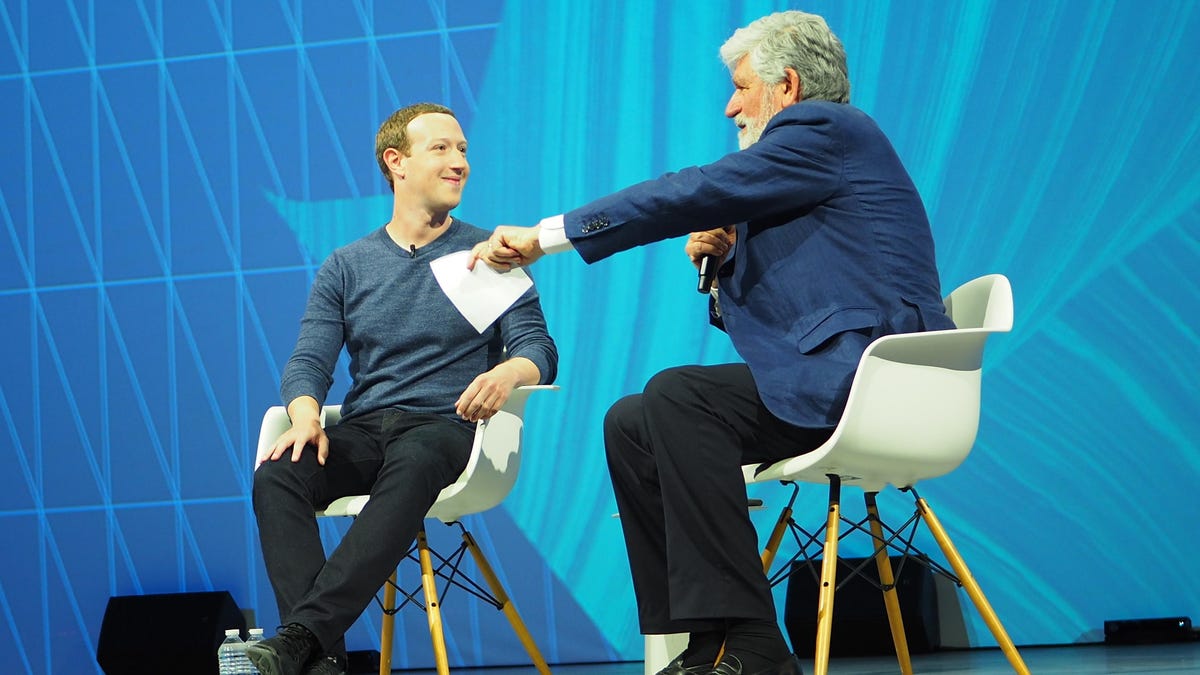Mark Zuckerberg's next personal project? A 'supreme court' for Facebook
Concluding the Europe leg of his apology tour, the Facebook CEO talks about his plans for governance.

Mark Zuckerberg on stage at VivaTech in Paris
Oh it's a jolly holiday for Mark Zuckerberg.
The Facebook CEO finished up a trip to Europe on Thursday with a day out at the VivaTech conference in Paris, where he was greeted with rapturous applause from the audience and didn't have to answer a single question from an indignant politician about his company's part in one of the biggest scandals in tech in recent years.
Cambridge Analytica was the elephant in the room, but wasn't mentioned once in his fireside chat on stage at the show. It must have been a nice change for the tech chief, who's spent the past couple of months doing little else but publicly apologizing for his company's role in the misuse of the personal data of tens of millions of Facebook users. His latest apology occurred Tuesday as he was grilled by MEPs in the European Parliament.
Zuckerberg used the opportunity Thursday to touch on the changes and tools Facebook has brought in as a result of the scandal, but without referring to it directly. He also shared his plans for his next big personal project.
In the past, his personal projects have included learning Mandarin, running a bunch, building an AI butler for his home, and travelling to various US states to meet people. Next up? Sorting out Facebook's governance.
"Eventually something that I'd like to get to is something where we have somewhat of a supreme court … that's made up of people who maybe aren't employed by Facebook but have some understanding of what the policies are and the principles that we're trying to have for the community," he said.
This will mean people who have content pulled down by Facebook will be able to go through an appeals process to challenge the decision if they feel strongly about it.
Zuckerberg said he also hopes to have a "a set of content principles that are more informed by people around the world." He will consult experts to try to come up with some models for having more community-oriented governance, he said.
The "supreme court" is an idea he first mentioned in an interview with Vox in April. The fact that he's brought it up again means it's something you can probably expect to hear him talking about more and more in coming months.
GDPR
Internal governance is one thing, but Facebook's big issue in Europe right now is external regulation. At Tuesday's European Parliament there was some debate over whether Facebook should be examined by competition authorities. Meanwhile, the company is getting itself in order to comply with Europe's incoming General Data Protection Regulation -- strict new privacy rules that take effect Friday.
Discussing this on stage, Zuckerberg implied that preparing for GDPR was not such a big deal for Facebook given that the company already had its house in order.
"Because giving people control of how their data is used has been a core principle of Facebook since the beginning, GDPR adds some new control, but overall it isn't such a massive departure from how we've approached things in the past," he said.
Reiterating a point he made in front of the European Parliament on Tuesday, he said people would have full control over deleting their data and history, but they had to be prepared for the fact it might leave them with a worse experience. "News feed ranking might get worse for you," he said. "Fundamentally that should be a decision that people should be able to make."
CNET Magazine: Check out a sample of the stories in CNET's newsstand edition.
Tech Enabled: CNET chronicles tech's role in providing new kinds of accessibility.

